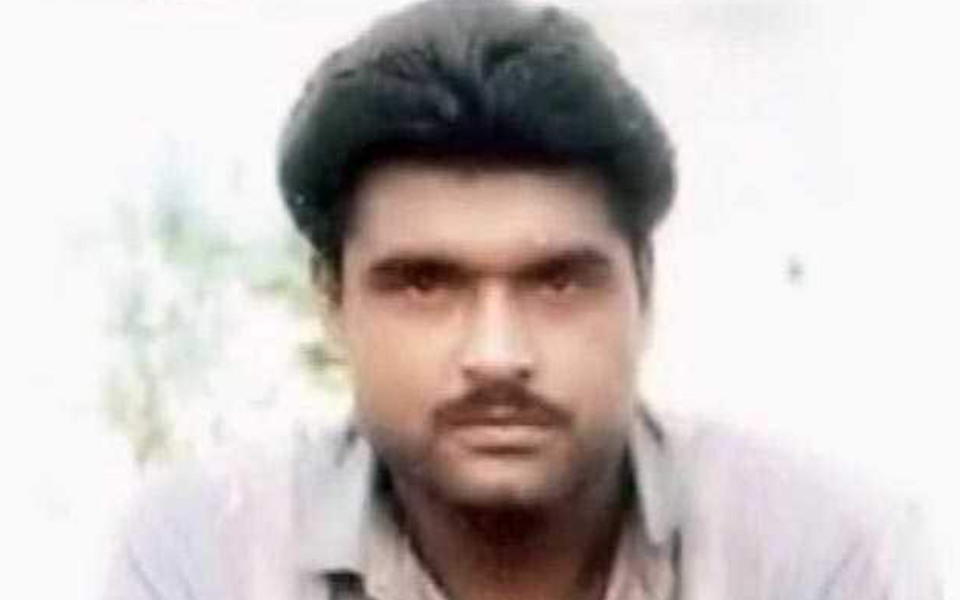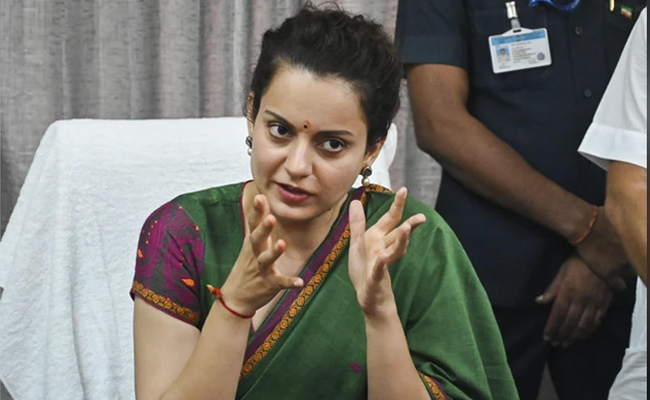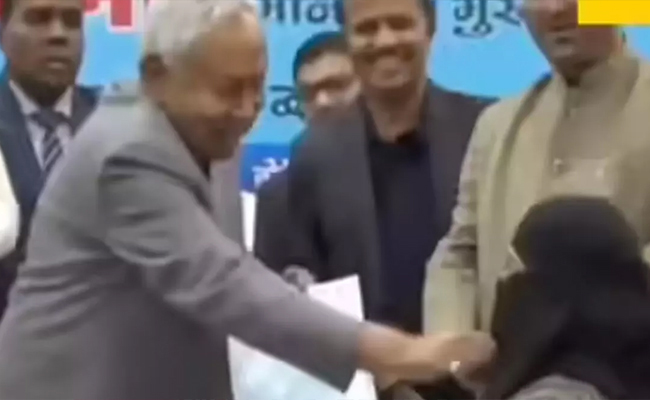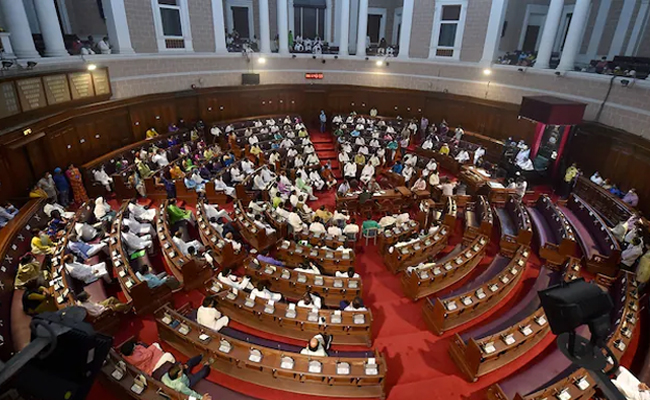Lahore/New Delhi, Apr 14: Amir Sarfaraz Tamba, an accused in the murder of Sarabjit Singh, the Indian death row prisoner in Pakistan, and a close associate of Lashkar-e-Taiba (LeT) terror outfit founder Hafiz Saeed, was killed by unidentified gunmen in an apparent "targeted attack" in Lahore on Sunday.
Tamba was attacked by motorcycle-borne assailants at his residence in Sanant Nagar, a thickly populated area of old Lahore in the afternoon. He was rushed in critical condition to a hospital where he succumbed to his injuries.
Police have registered an FIR against two unidentified assailants on the complaint of Tamba's younger brother Junaid Sarfraz. According to reports, Tamba’s body bore bullet wounds on chest and legs.
Singh, 49, died of cardiac arrest in Jinnah Hospital Lahore in the wee hours of May 2, 2013, after being comatose for nearly a week following a brutal assault by inmates, including Tamba, inside the high-security Kot Lakhpat jail in Lahore.
Singh had been allegedly found guilty of taking part in several bombings in Pakistan's Punjab province in 1990 and was given the death penalty. However, Singh's family in India maintained he was a victim of mistaken identity and had inadvertently strayed across the border.
His sister Dalbir Kaur had fought a long battle to secure his release from Pakistan but failed.
Dr Usman Anwar, Inspector General Police of Pakistan’s Punjab province, said that police are investigating the murder of Tamba from all aspects. “However, it will be premature to pinpoint involvement of anti-State elements at this stage,” he said.
According to the FIR, Junaid Sarfraz said he and his elder brother Amir Sarfraz Tamba were present at home in Sanant Nagar when the incident took place.
“I was present at the ground floor while Tamba was at the upper portion. The main gate of the house was open. Two unidentified motorcyclists -- one wearing helmet and other a facemask -- entered the house at 12.40 pm Sunday and moved towards the upper portion.
“They fired three shots at Tamba and fled from the scene. I rushed to the upper floor and found Tamba in a pool of blood. He was shifted to hospital where he succumbed to his wounds,” Juniad said in his complaint.
Tamba, son of Sarfaraz Javed, was born in Lahore in 1979 and was a close associate of the LeT founder, who felicitated him for killing Singh, official sources in India said.
In Lahore, police officer Sajjad Hussain told PTI that it appears to be a “targeted attack.”
Hussain said the younger brother of Tamba told police that the family had no enmity with anyone. He said police are also investigating Tamba's killing regarding his role in the alleged murder case of Sarbajit Singh.
Notorious as ‘Lahore ka asli don’, Tamba was part of the ‘Truckwalla gang’ and was engaged in the property trade and drug trafficking, the sources said, adding, he was involved in a clash recently with one of the gang members Ameer Balaj Tipu, who was later killed during a marriage reception in Lahore.
Tamba and his accomplice Mudassar -- two Pakistani death row prisoners -- had attacked Singh in 2013 resulting in his death.
Singh died before recording his statement before the doctors.
A Pakistani court in 2018 had acquitted them both in Singh’s murder case citing “lack of evidence” against them after all the witnesses turned hostile.
A one-man judicial commission of Justice Mazhar Ali Akbar Naqvi of Lahore High Court had initially investigated Singh’s murder case before the trial kicked off in the Sessions court.
Judge Naqvi recorded the statements of some 40 witnesses in the case and submitted its report to the government, which is yet to make its findings public.
The one-man commission had also issued notices to Singh’s relatives through the Foreign Ministry to record their statements and produce any evidence they had regarding his death.
However, Singh’s family did not record their statements.
Tamba and Mudassar, in their statements to the commission, had confessed to the crime and said they killed Singh as they wanted to avenge the killing of people in Lahore and Faisalabad in bomb blasts allegedly carried out by the Indian national.
Tamba was enjoying all facilities, including a mobile phone, inside the jail during his imprisonment, the sources said.
Let the Truth be known. If you read VB and like VB, please be a VB Supporter and Help us deliver the Truth to one and all.
New Delhi: A significant political controversy has erupted following the Modi government's decision to rename the Mahatma Gandhi National Rural Employment Guarantee Act (MGNREGA), a move that has drawn sharp criticism from opposition parties. The row was further fueled by BJP MP Kangana Ranaut, who, while defending the name change, erroneously claimed that Mahatma Gandhi had made the devotional song "Raghupati Raghav Raja Ram" India’s national anthem.
The central government has rebranded the flagship rural employment scheme from MGNREGA to the "Viksit Bharat-Guarantee for Employment and Livelihood Mission," abbreviated as VB-G RAM G. The removal of Mahatma Gandhi's name from the scheme has been termed an insult to the Father of the Nation by the Congress and other opposition parties.
When questioned by the media outside Parliament regarding the opposition's allegations, Mandi MP Kangana Ranaut defended the government's decision by invoking Mahatma Gandhi's devotion to Lord Ram.
"How is naming it 'Ram Ji' an insult to Gandhi ji?" Ranaut asked. "Mahatma Gandhi made 'Raghupati Raghav Raja Ram' the national anthem to organize the entire country. Therefore, this is an insult to Mahatma Gandhi? The government is fulfilling his dream by giving it the name of Ram."
Ranaut's claim regarding the national anthem was immediately seized upon by the opposition. Congress leader Supriya Shrinate shared the video of Ranaut’s statement on social media, tweeting sarcastically, "Come on brother, today we learned a new national anthem! The BJP is full of such gems."
Social media users also trolled the MP for the factual error. One user quipped, "Kangana ji forgot to mention that Bapu made this the national anthem after the country got independence in 2014," while another commented that the party finds people who "don't use their brains while forwarding WhatsApp messages."
Beyond the social media mockery, senior Congress leaders criticised the renaming on ideological grounds. Former Rajasthan Chief Minister Ashok Gehlot took to X (formerly Twitter) to condemn the move.
"The biggest irony is that Mahatma Gandhi was a lifelong devotee of Lord Ram and said 'Hey Ram' in his last moments," Gehlot wrote. "Today, the central government is making a despicable attempt to sideline Gandhi ji under the guise of the same 'Ram' name (VB-G RAM G), which is highly condemnable."
मनरेगा का नाम बदलने की केंद्र सरकार की कवायद महात्मा गांधी के प्रति उनकी ओछी मानसिकता और असम्मान का प्रमाण है। सरकार पहले 'पूज्य बापू' के नाम का शिगूफा छोड़ती है और फजीहत होने पर अब 'विकसित भारत-गारंटी फॉर रोजगार एंड आजीविका मिशन (VB-G RAM G)' जैसा नाम थोपना चाहती है। बार-बार नाम…
— Ashok Gehlot (@ashokgehlot51) December 15, 2025
गांधी जी ने ‘रघुपति राघव राजा राम’ को लेकर नेशनल एंथम बनाया था
— Supriya Shrinate (@SupriyaShrinate) December 16, 2025
BJP MP कंगना रनौत
चलो भाई आज नया नेशनल एंथम भी पता चला है!
BJP में एक से एक शिरोमणि भरे पड़े हैं 😂🤣 pic.twitter.com/9DvyV5xLb1





